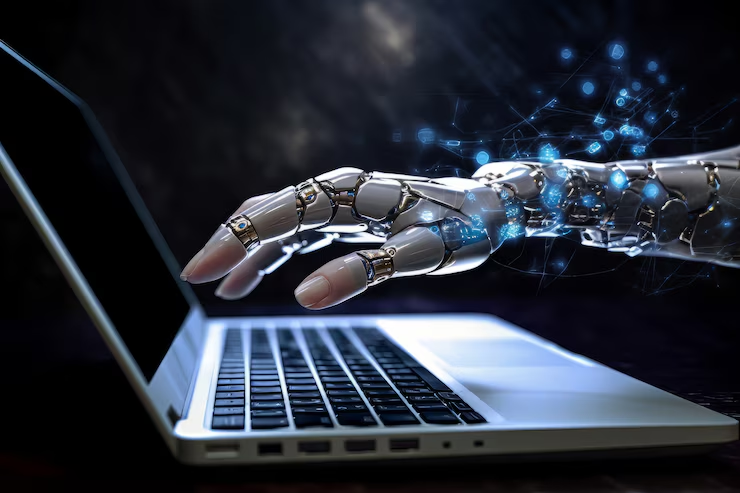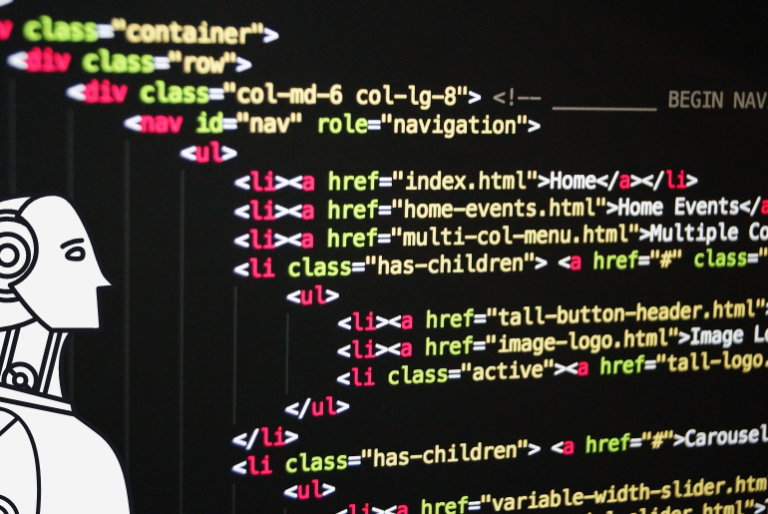Contents
- 1 Period of Evolution
- 2 What is the true definition of Artificial Intelligence?
- 3 Artificial Intelligence vs Human Intelligence
- 4 In the ever-evolving landscape of technology, one topic constantly stirs debate and speculation:
- 5 Frequently Asked Questions
- 5.1 What is the definition of Artificial Intelligence (AI)?
- 5.2 How does AI differ from human intelligence?
- 5.3 Can AI replace human intelligence?
- 5.4 What are the benefits of combining AI with human intelligence?
- 5.5 What are common concerns about AI?
- 5.6 How do people perceive the role of AI in the future?
- 5.7 What is the role of human intelligence in AI development?
- 5.8 How can AI and human intelligence work together in practical scenarios?
Period of Evolution
It seemed like such a distant science fiction fantasy just years back to imagine AI taking over human-specific tasks. Nevertheless, with rapid advancements in AI happening today, this discussion has moved from hypothetical to real. Amidst all the noise and excitement about AI though it is clear that human intelligence is invaluable and unique.
What is the true definition of Artificial Intelligence?
This is one of the questions everyone was asking themselves back then. According to Wikipedia The term artificial intelligence is a broad and far-reaching term that no one definition can encase it all. However, an efficient model should be able to perform machine learning either through a computer program or by some other means such as a machine. AI then can be anything between automatic quick instant artificial intelligence.
Artificial Intelligence vs Human Intelligence
While we compare them, we need to capitulate the terms, HUMAN INTELLIGENCE refers to the learning and knowledge of a human, knowledge is never enough and this is how it works.
Human psychology works on the principles of practical and theoretical learning whilst AI works on a programmed key of knowledge, instructed by humans and their intelligence. AI can be limitless, the same is not the case of human intelligence.
Survey Analysis
A recent survey found that most people see artificial intelligence (AI) and human intelligence as working together, not against each other. About 68% recognize AI’s ability to quickly handle data and do tasks automatically.
At the same time, 72% value human intelligence for its creativity, empathy, and smart decision-making.Many also understand that AI is really good at certain things, like healthcare and finance (about 85% agree on this). But even with AI’s strengths, people still believe human intelligence is important for dealing with tricky situations and making ethical choices (also 72% agree here).
The survey also shows worries about AI taking over jobs and ethical issues. But most people think we should use AI alongside human smarts.

Understanding the difference
They believe we can do more and make a better future by working together, where human brains lead the way, and AI helps out. Words can fall short when AI’s benefits can be detected and known. Human Intelligence operates on a very different repertoire. Upon arrival at the Human Intelligence stage, it becomes evident that AI is a byproduct of Human intelligence.
In the ever-evolving landscape of technology, one topic constantly stirs debate and speculation:
Can Artificial Intelligence (AI) replace Human Intelligence?
The question is to inspire and scare us so that we can go deep into the different intricacies of these two kinds of intelligence and how they are connected. This shows that only humans will be able to put a mind behind an AI; making it easy for one to conclude that this is just another form of Human Intelligence. For example, when considering whether or not all information has to be processed in data surveys, there is a considerable difference between the two.
So long as some recorded details have been fed into a system, this will always repeat over those same points; hence it would be wrong to say that AI could take human jobs. When USG’s input update differs from that of the AI, what should be done if there is no accuracy in any case until accurate data comes about?
Addressing Concerns and Embracing Collaboration
These can be very well understood by classifying them as a controller, transmitter, and executor. For instance the humans in this case become the controllers; The AI serves as transmitters while automated executors are robots. There are certain tasks that AI is incapable of doing, for instance, you may ask an AI for recipes but you have to cook the food yourself because the recipe is also generated by humans.
It’s where the real magic happens, combining Artificial Intelligence with Human Intelligence. We could reach fates that we thought were impossible if only we leveraged both the weaknesses and strengths of each species. In one scene, picture a world where AI algorithms analyze medical data leading to faster and more accurate disease diagnoses while human doctors provide personalised care and emotional support to patients. Likewise, think about how financial markets would look like if AI powered financial algorithms became dependent on human investment managers who understand investor’s psychology.
Needless to say, integrating AI into our lives raises valid concerns ranging from job losses to ethical dilemmas. Rather than seeing it as a threat towards our own intelligence let us see it as a way of enhancing our abilities. We will find ourselves confronted by numerous complex challenges that will need new possibilities for addressing them through partnerships with AI.

Harnessing a Collaborative Intelligence: Forging a Path Towards Innovation
Ultimately, the future of AI is not a contest between humans and machines, but rather an alliance – a living performance in which humans take the lead and AI amplifies what they do. However, this changing context reminds us that real power comes from combining strengths from both artificial intelligence (AI) and human brain power as we script a brighter futuristic life.
Beyond this, We can combine this with other methods to achieve better results so that our resultant future is highly technological and maintains its humanity highlighting both innovation due to automation alongside flourishing creativity’s empathy and compassion. As we adjust to these trends, it should be noted that being able to duplicate human ability is not the yardstick for measuring intelligence; rather, true intellectuality lies in how we can embrace our uniqueness as people.
It has been very well put across by Marvin Minsky in his words;
“The question is not whether intelligent machines can have any emotions, but whether machines can be intelligent without any emotions?”.
Frequently Asked Questions
-
What is the definition of Artificial Intelligence (AI)?
Artificial Intelligence refers to the ability of machines to perform tasks that typically require human intelligence, such as learning, reasoning, and problem-solving.
-
How does AI differ from human intelligence?
AI operates based on programmed knowledge and data, while human intelligence involves practical and theoretical learning, creativity, empathy, and ethical decision-making.
-
Can AI replace human intelligence?
While AI can handle data and automate tasks efficiently, human intelligence is essential for creativity, empathy, and complex decision-making. Collaboration between AI and humans is key.
-
What are the benefits of combining AI with human intelligence?
Combining AI with human intelligence can lead to innovative solutions in fields like healthcare, where AI aids in diagnosis, and human doctors provide personalized care.
-
What are common concerns about AI?
Concerns include job displacement and ethical issues. However, many believe AI should be used to enhance human abilities rather than replace them.
-
How do people perceive the role of AI in the future?
Surveys show that most people see AI and human intelligence working together, valuing AI’s efficiency and human intelligence’s creativity and empathy.
-
What is the role of human intelligence in AI development?
Human intelligence is crucial in programming and guiding AI systems, ensuring they function effectively and ethically. AI is a byproduct of human ingenuity.
-
How can AI and human intelligence work together in practical scenarios?
In healthcare, AI can analyze medical data for accurate diagnoses, while human doctors offer emotional support. In finance, AI algorithms can enhance human investment strategies.








